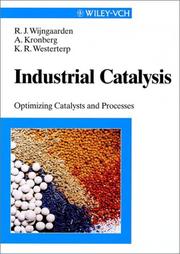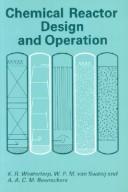| Listing 1 - 8 of 8 |
Sort by
|
Book
ISSN: 21929866 ISBN: 364234626X 3642346278 1283935414 Year: 2013 Publisher: New York : Springer,
Abstract | Keywords | Export | Availability | Bookmark
 Loading...
Loading...Choose an application
- Reference Manager
- EndNote
- RefWorks (Direct export to RefWorks)
Energy balance can be maintained by adapting energy intake to changes in energy expenditure and vice versa, where short-term changes in energy expenditure are mainly caused by physical activity. Questions are whether physical activity is affected by over and under-eating, is intake affected by an increase or a decrease in physical activity, and does overweight affect physical activity? Presented evidence is largely based on studies where physical activity is quantified with doubly labeled water. Overeating does not affect physical activity while under-eating decreases habitual or voluntary physical activity. Thus, it is easier to gain weight than to lose weight. An exercise induced increase in energy requirement is compensated by intake while a change to a more sedentary routine does not induce an equivalent reduction of intake and generally results in weight gain. Overweight and obese subjects have similar activity energy expenditures than lean people despite they move less. There are two options to reverse the general population trend for an increasing body weight, reducing intake or increasing physical activity. Based on the results presented, eating less is most effective for preventing weight gain, despite a potential negative effect on physical activity when reaching a negative energy balance.
Bioenergetics. --- Exercise -- Physiological aspects. --- Human mechanics. --- Bioenergetics --- Human physiology --- Biological Science Disciplines --- Metabolism --- Metabolic Phenomena --- Natural Science Disciplines --- Phenomena and Processes --- Disciplines and Occupations --- Energy Metabolism --- Physiology --- Human Anatomy & Physiology --- Health & Biological Sciences --- Animal Biochemistry --- Energy metabolism. --- Medicine. --- Human physiology. --- Nutrition. --- Sports medicine. --- Biomedicine. --- Human Physiology. --- Biomedicine general. --- Sports Medicine. --- Microbial respiration --- Alimentation --- Food --- Nutrition --- Health --- Diet --- Dietetics --- Digestion --- Food habits --- Malnutrition --- Athletic medicine --- Athletics --- Medicine and sports --- Physical education and training --- Sports --- Medicine --- Sports sciences --- Clinical sciences --- Medical profession --- Human biology --- Life sciences --- Medical sciences --- Pathology --- Physicians --- Human body --- Health aspects --- Medical aspects --- Health Workforce --- Nutrition . --- Biomedicine, general.
Book
Year: 2001 Publisher: Maastricht : s.n.,
Abstract | Keywords | Export | Availability | Bookmark
 Loading...
Loading...Choose an application
- Reference Manager
- EndNote
- RefWorks (Direct export to RefWorks)
Digital
ISBN: 9783642346279 Year: 2013 Publisher: Berlin, Heidelberg Springer
Abstract | Keywords | Export | Availability | Bookmark
 Loading...
Loading...Choose an application
- Reference Manager
- EndNote
- RefWorks (Direct export to RefWorks)
Energy balance can be maintained by adapting energy intake to changes in energy expenditure and vice versa, where short-term changes in energy expenditure are mainly caused by physical activity. Questions are whether physical activity is affected by over and under-eating, is intake affected by an increase or a decrease in physical activity, and does overweight affect physical activity? Presented evidence is largely based on studies where physical activity is quantified with doubly labeled water. Overeating does not affect physical activity while under-eating decreases habitual or voluntary physical activity. Thus, it is easier to gain weight than to lose weight. An exercise induced increase in energy requirement is compensated by intake while a change to a more sedentary routine does not induce an equivalent reduction of intake and generally results in weight gain. Overweight and obese subjects have similar activity energy expenditures than lean people despite they move less. There are two options to reverse the general population trend for an increasing body weight, reducing intake or increasing physical activity. Based on the results presented, eating less is most effective for preventing weight gain, despite a potential negative effect on physical activity when reaching a negative energy balance.
Human biochemistry --- Human physiology --- Nutritionary hygiene. Diet --- Social medicine --- Pathological biochemistry --- Human medicine --- Recreation. Games. Sports. Corp. expression --- medische biochemie --- obesitas --- biochemie --- biomedische wetenschappen --- voedingsleer --- sportgeneeskunde --- fysiologie
Book
Abstract | Keywords | Export | Availability | Bookmark
 Loading...
Loading...Choose an application
- Reference Manager
- EndNote
- RefWorks (Direct export to RefWorks)
Book
Year: 1963 Publisher: Amsterdam : Netherlands university press,
Abstract | Keywords | Export | Availability | Bookmark
 Loading...
Loading...Choose an application
- Reference Manager
- EndNote
- RefWorks (Direct export to RefWorks)
Book
Year: 1963 Publisher: Amsterdam : Netherlands university press,
Abstract | Keywords | Export | Availability | Bookmark
 Loading...
Loading...Choose an application
- Reference Manager
- EndNote
- RefWorks (Direct export to RefWorks)

ISBN: 3527285814 Year: 1998 Publisher: Weinheim : Wiley-VCH,
Abstract | Keywords | Export | Availability | Bookmark
 Loading...
Loading...Choose an application
- Reference Manager
- EndNote
- RefWorks (Direct export to RefWorks)

ISBN: 0471901830 0471917303 Year: 1993 Publisher: Chichester : Wiley,
Abstract | Keywords | Export | Availability | Bookmark
 Loading...
Loading...Choose an application
- Reference Manager
- EndNote
- RefWorks (Direct export to RefWorks)
Chemical technology --- reactoren --- Réacteurs chimiques --- Chemical reactors --- Reactors, Chemical --- Chemical reactions --- Chemistry, Technical --- Chemical reactors. --- Réacteurs chimiques.
| Listing 1 - 8 of 8 |
Sort by
|

 Search
Search Feedback
Feedback About UniCat
About UniCat  Help
Help News
News